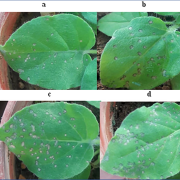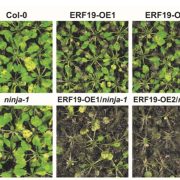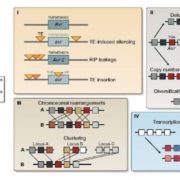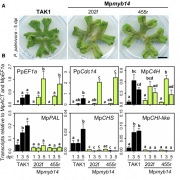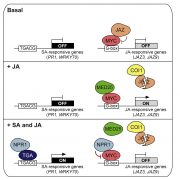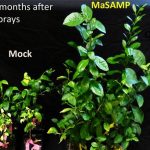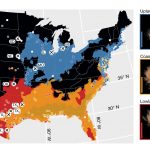Regulation of ACD6 ion channel-like protein by small peptides (bioRxiv)
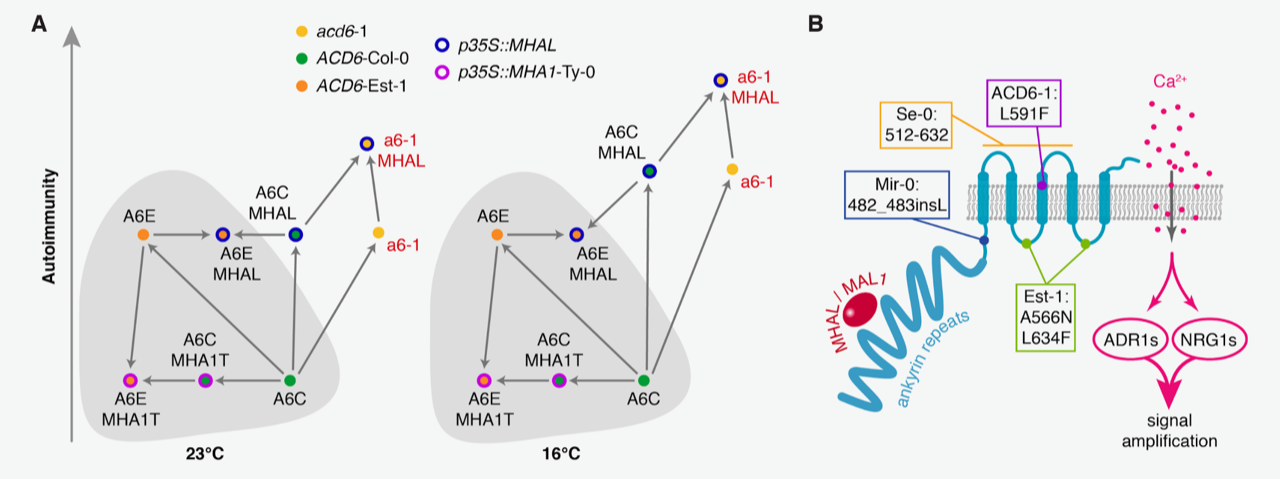 ACCELERATED CELL DEATH 6 (ACD6) positively regulates the signaling of the plant defense hormone salicylic acid (SA). It was originally identified by the study of natural variation in defense responses of Arabidopsis thaliana. The naturally hyperactive ACD6-Est-I allele confers broad-spectrum disease resistance at the cost of reduced growth due to constitutive activation of SA-mediated immunity. Yet, not all ACD6-Est-I carriers show such “autoimmunity,” suggesting that ACD6-Est-I-mediated immune responses can be suppressed by epistatic interactions. Here, through genome-wide association (GWA) analysis focusing on ACD6-Est-I carriers, Zhu et al. identified MODIFIER OF HYPERACTIVE ACD6 I (MHAI) as a suppressor of ACD6-mediated immunity. MHAI and its paralog MHAI-LIKE (MHAL) encode small peptides that interact with ACD6 protein in planta, and when overexpressed, MHAL enhanced activity of the non-autoimmune allele of ACD6. The authors found that ACD6 has structurally similar domains to mammalian transient receptor potential channels, and surprisingly, they found that ACD6 stimulates Ca2+ influx when expressed in oocytes. The potential ion channel activity of ACD6 was enhanced by MHAL. Finally, the authors showed that ACD6 triggered autoimmunity requires Ca2+. This study reveals complicated epistatic interactions between a key immune regulator and previously unidentified small peptides by leveraging the power of GWA analysis. (Summary by Tatsuya Nobori @nobolly) bioRxiv 10.1101/2021.01.25.428077
ACCELERATED CELL DEATH 6 (ACD6) positively regulates the signaling of the plant defense hormone salicylic acid (SA). It was originally identified by the study of natural variation in defense responses of Arabidopsis thaliana. The naturally hyperactive ACD6-Est-I allele confers broad-spectrum disease resistance at the cost of reduced growth due to constitutive activation of SA-mediated immunity. Yet, not all ACD6-Est-I carriers show such “autoimmunity,” suggesting that ACD6-Est-I-mediated immune responses can be suppressed by epistatic interactions. Here, through genome-wide association (GWA) analysis focusing on ACD6-Est-I carriers, Zhu et al. identified MODIFIER OF HYPERACTIVE ACD6 I (MHAI) as a suppressor of ACD6-mediated immunity. MHAI and its paralog MHAI-LIKE (MHAL) encode small peptides that interact with ACD6 protein in planta, and when overexpressed, MHAL enhanced activity of the non-autoimmune allele of ACD6. The authors found that ACD6 has structurally similar domains to mammalian transient receptor potential channels, and surprisingly, they found that ACD6 stimulates Ca2+ influx when expressed in oocytes. The potential ion channel activity of ACD6 was enhanced by MHAL. Finally, the authors showed that ACD6 triggered autoimmunity requires Ca2+. This study reveals complicated epistatic interactions between a key immune regulator and previously unidentified small peptides by leveraging the power of GWA analysis. (Summary by Tatsuya Nobori @nobolly) bioRxiv 10.1101/2021.01.25.428077


